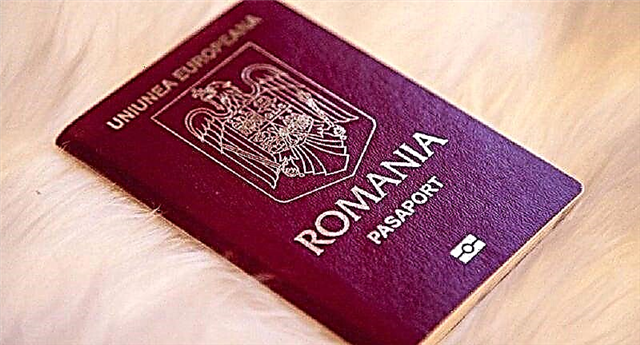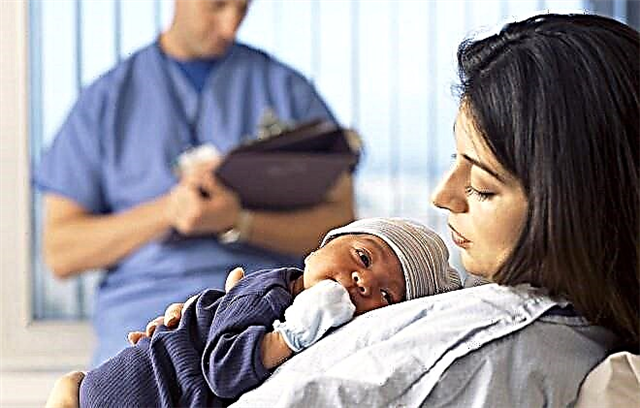When it comes to the world's best medicine, Israel certainly figures in the top five countries. They treat prenatal and perinatal medicine with the utmost attention, ensuring a high percentage of safe, healthy childbirth, excluding negative consequences for the woman and the child. That is why pregnancy and childbirth in Israel is very popular as a medical service.

Benefits of childbearing in Israeli clinics
The period of perinatal follow-up includes several weeks of pregnancy management with prenatal diagnosis, immediate delivery in comfortable conditions and 168 hours after them. Moreover, all medical decisions are made taking into account the wishes of the expectant mother.
High-quality training of doctors in Israel gives grounds for confidence in the qualifications of the clinic staff. The maternity wards provide high-quality medical services using advanced obstetric technologies, high-quality postnatal support is guaranteed.
In addition, it provides:
- everyday comfort of staying in clinics, the choice of the method of childbirth: in the water, on a special chair or couch;
- a complete set of hygiene products for a woman in labor and her baby;
- a careful approach to a woman, the possibility of being accompanied by her relatives and Russian-speaking staff.
The selection of a medical center is carried out taking into account the reputation of the medical institution, its material base and the focus of obstetrics. It is common practice for parents-to-be to visit clinics and wards in advance.
How is pregnancy done?
Until the 40th week, a woman undergoes prenatal examinations 1-2 times a month by a gynecologist who monitors pregnancy in Israel. In this country, it is customary to clearly monitor the condition of the expectant mother, but the abuse of frequent tests, medications and ultrasound examinations (ultrasound) is not welcomed.
Before the trip, medical insurance is issued, which provides for a number of insured events, including the recommended ultrasound screening at the 32nd week of pregnancy. On the 31st week of the term, the policy will cost from 11,000 rubles. (in Rosgosstrakh).
The main analyzes include:
- blood tests - detailed and general;
- general urine analysis;
- testing for HIV and rubella.
To determine the tendency to diabetes in pregnant women in the third trimester, an analysis is made for the presence of sugar in the blood. Before giving birth, starting from the 40th week, with an interval of 3 days, the woman will have to visit the maternity ward, where she will undergo:
- examinations for cervical dilatation;
- studies on a cardiotocograph (KGT) and ultrasound.
A pregnant woman must learn breathing and relaxation techniques during childbirth.
About childbirth and the postpartum period
In preparation for childbirth, bowel lavage and shaving of the pubic area are not practiced. A woman is given a micro enema, which is recommended to be done before childbirth. They pay more attention to the patient's condition, her mood during labor.
Childbirth in Israel is carried out using modern local anesthetics and conductive epidural anesthesia, as well as acupuncture, aromatherapy and homeopathy. The woman in labor herself chooses the method of pain relief.
The birthing process takes place in individual wards. The state of the fetus and the mother, the intensity, and the dynamics of labor are monitored using the CTG.
When a baby is born, the umbilical cord is not cut immediately. For some time he lies on his mother's stomach. After the child has been examined by a neonatologist, tests are collected and vaccinated. To identify possible ruptures, the mother is carefully examined by a midwife.
For another 2 hours, the woman remains in the delivery room, after which she is transferred to the postpartum room. The presence of the baby in the ward depends on the desire of the postpartum woman.

With a successful course of childbirth, discharge occurs on the 2-3rd day. If you have resorted to surgery, then the stay in the clinic is increased to 2 weeks; as a rule, this is not taken into account in the insurance and requires additional payment.
What determines the cost of childbirth
It is definitely difficult to say how much it costs to give birth in Israel. Let's start with the estimated cost of pregnancy management:
- from the first trimester - from $ 9,900;
- from the 30th week - from $ 6,500;
- from the 38th week from $ 3,800.
With additional examinations required in preparation for childbirth, another $ 1,000-2,500 may be added.
Depending on the direction of obstetrics (with epidural anesthesia), the amount can vary greatly:
- normal delivery without complications - up to $ 11,000;
- complicated course of childbirth - up to $ 17,000;
- premature birth with postpartum nursing of a child with a 21-day stay in the clinic - from $ 70,000 or more;
- for obstetric operations (including caesarean section with 5 days of rehabilitation) - up to $ 20,000.
Thus, the cost of childbirth in Israel is made up of the following factors:
- the period of observation of pregnancy and the nature of its course;
- the number of examinations by specialists;
- the course of the rehabilitation period.
If the woman or her husband is an Israeli citizen, or if the pregnant woman has a work visa and has paid insurance premiums, the payment for medical services may be covered by Israeli health insurance.
Discharge after childbirth: what needs to be done
To pick up a mother and baby from the maternity ward, you need, firstly, to take care of the registration of his birth certificate in Israel. The certificate is issued by the authorized body of the country. Parents need to know that having a child of such a document does not resolve the issue of his citizenship, if the father or mother is not an Israeli citizen.
Secondly, the child will be discharged from the clinic only if there is a car seat in which the newborn must be fastened at the time of discharge.
Organization of the trip
It is better to contact the organizing companies available in all major Israeli medical centers. Specialist coordinators will help with visa processing, flight and accommodation arrangements. With them, it is easier to carry out the procedure for signing a contract for medical care with the clinic, obtaining insurance for the woman in labor and her attendant, and paying for services. Upon arrival of a pregnant woman in the country, a company representative will accompany her everywhere to ensure a comfortable stay.

A visa-free regime has been established for Russians with Israel: a stay in the country for up to 90 days is allowed for six months. Considering that the purpose of the trip is medical tourism, there will be no problems with entry. Must be available: passport, monitoring card of a pregnant woman, an invitation from a medical center, documents confirming financial capabilities, tickets back.
It is necessary to arrive for childbirth 1-1.5 months in advance to acclimatize and adjust the pregnancy program. Immediately after childbirth, it is not recommended to take the baby out, it is better to let him get stronger.
Israeli perinatal centers
There are no maternity hospitals in Israel. But all multidisciplinary clinics have maternity wards equipped with modern equipment for hardware (including intensive care) and laboratory examinations. By the way, in Israel the cost of such research is slightly more affordable in comparison with Germany and the United States.
Among the most popular maternity centers:
- "Haima Sheba", which is a major medical research center in the Middle East;
- Assuta is a world-class private medical complex that unites not only hospitals, but also research institutes and laboratories, collaborating with the most famous Israeli doctors;
- Manol Medical Center is a clinic with many years of experience in providing high quality services in the field of gynecology and obstetrics.
You can also recommend the Hadassah Ein Kerem, Meir, Sanz Laniado, and Kaplan Medical Center clinics.
Finally
Every year more and more women turn to Israeli perinatal centers. And this trend will continue in 2021. This practice of childbirth is not only attractive to women who have health problems or have a difficult previous experience of childbirth.
Management of late pregnancy in Israel is very popular. It also has accumulated experience in nursing prematurely born babies with very low weight.
On social networks, you can find a lot of positive reviews both about the country's clinics and about the medical services they provide, including the management of pregnancy and childbirth.











